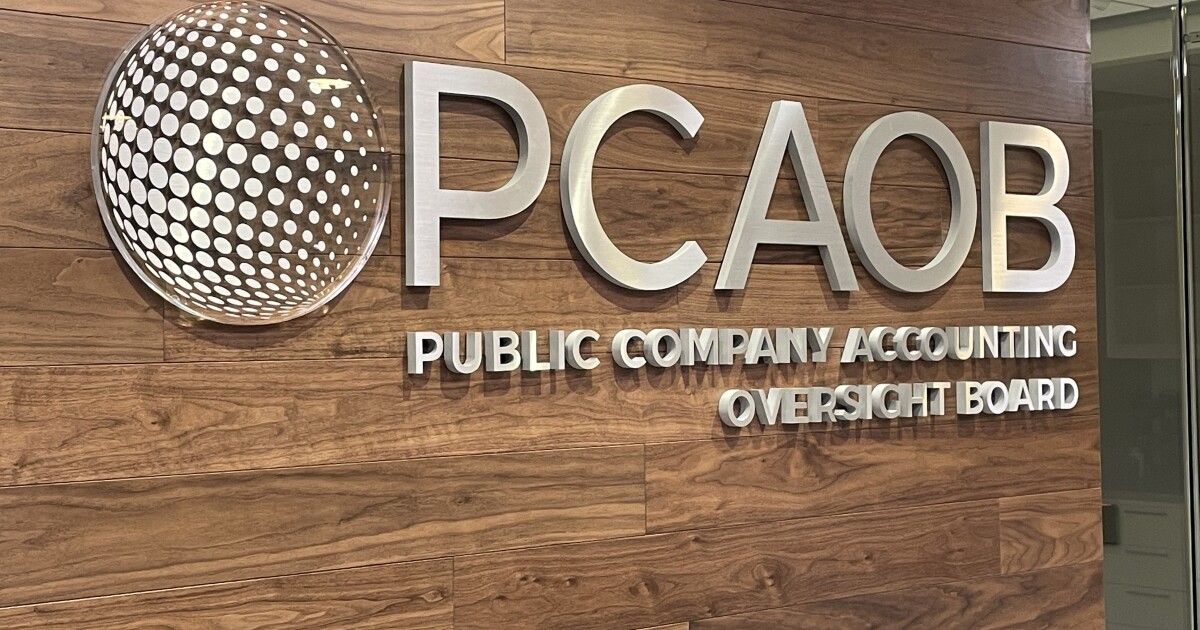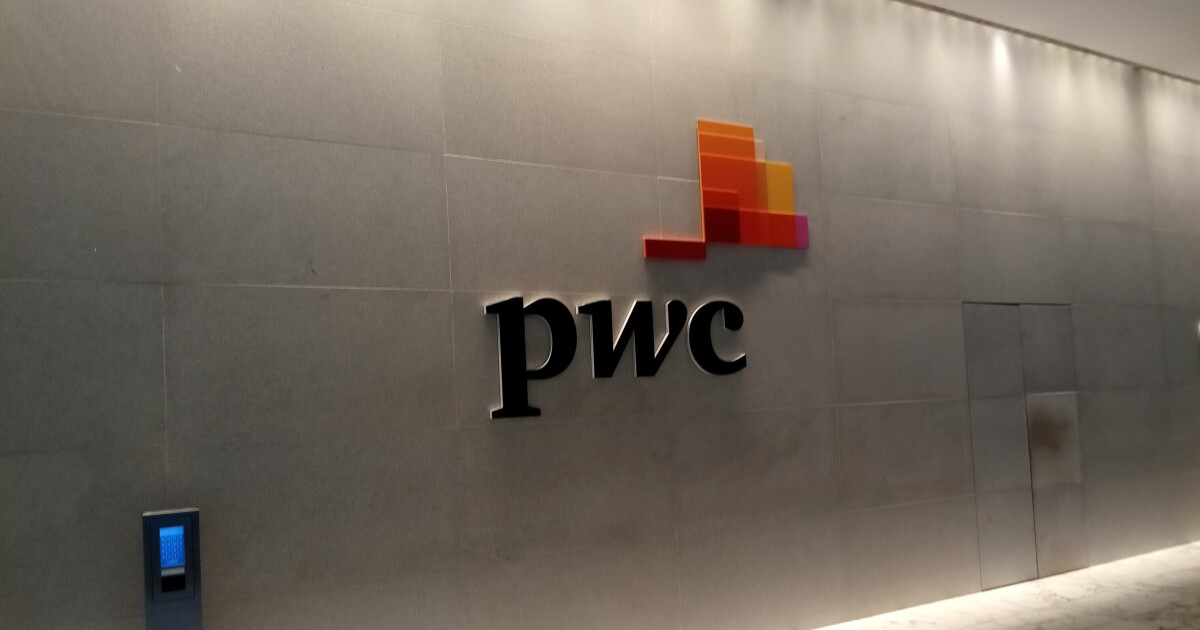The Public Company Accounting Oversight Board voted Thursday to adopt new requirements for auditing firms to report on various metrics for both the firm and its engagements, as well as change the annual reports the firms submit to the PCAOB.
The changes involve two standards, on firm and engagement metrics, and firm reporting. The PCAOB proposed the far-reaching standards in April, and they provoked some pushback from commenters, especially on engagement metrics. The firm and engagement metrics project stemmed from a yearslong effort at the PCAOB to develop a set of audit quality indicators. In response to some of the negative comments, the PCAOB decided to scale back the original proposal, although one member of board still voted against it.
Under the new rules, PCAOB-registered public accounting firms that audit one or more issuers that qualify as an accelerated filer or large accelerated filer will be required to publicly report specified metrics relating to such audits and their audit practices. These metrics — which will further PCAOB oversight activities and which can be used by investors, audit committees, and other stakeholders — cover the following eight areas:
- Partner and manager involvement;
- Workload;
- Training hours for audit personnel;
- Experience of audit personnel;
- Industry experience;
- Retention of audit personnel (firm-level only);
- Allocation of audit hours; and,
- Restatement history (firm-level only).
“The goal of this project before us today is to provide additional information about audit firms and their audits in both a consistent and comparable manner to bolster confidence, strengthen oversight, and empower investors and audit committees to make better informed decisions and help drive audit quality forward,” said PCAOB chair Erica Williams in a statement at an open meeting Thursday. “Today, investors and other stakeholders lack information about audit firms’ practices and their engagements — some of which may be shared with company management or their audit committees. Through this project, investors, audit committees and other stakeholders will have access to the same valuable information on firms and their engagements to help them make knowledgeable decisions regarding audit firms and investment related choices.”
Reporting of firm-level metrics will be required annually on a new Form FM, for firms that serve as the lead auditor for at least one accelerated filer or large accelerated filer. Reporting of engagement-level metrics for audits of accelerated filers and large accelerated filers will be required via a revised Form AP, which will be renamed “Audit Participants and Metrics.” Finally, limited narrative disclosures will be allowed (but not required) on both Form FM and Form AP to provide context and explanation for the required metrics.
After issuing its proposal in April on firm and engagement metrics, the PCAOB received feedback from a wide array of commenters and made some changes to the amendments as originally proposed
- Reduced the metric areas to eight (from 11);
- Refined the metrics to simplify and clarify the calculations;
- Increased the ability to provide optional narrative disclosure (from 500 to 1,000 characters); and,
- Updated the effective date. (If approved by the SEC, the earliest effective date of the firm-level metrics will be Oct. 1, 2027, with the first reporting as of September 30, 2028, and engagement-level metrics for the audits of companies with fiscal years beginning on or after Oct. 1, 2027.)
For the new requirements, the PCAOB also established a phased-in implementation to provide smaller firms with more time. The requirements will take effect for firms that audit more than 100 issuers first, and for other firms, the requirements will take effect the following year.
However, PCAOB board member Christina Ho, believes the new requirements were drawn up too hastily. “Our votes today are unprecedented,” she said in a statement at the meeting Thursday. “Never in the history of the PCAOB has the Board rushed to adopt new standards and rules in the middle of a historic transition to new SEC leadership, let alone adopt standards and rules that are not ready. The Firm and Engagement Metrics was proposed on April 9, 2024, and we received 46 comment letters. If adopted today, it will set the record for this Board as the fastest adopted standard which only took 226 days (7.5 months). The average number of days from proposal to adoption for the five standards adopted by this Board to date was 448 days (15 months), with an average of 32 comment letters. Essentially, although the Firm and Engagement Metrics proposal has over 40% more comment letters than the average of 32, it took half as much time as the other standards adopted by this Board. Political expediency is not evidence-based policymaking. Haste naturally harms work product quality, which will not escape any keen eyes.”
Firm reporting standard
For the firm reporting standard, the amendments adopted by the PCAOB on Thursday will modernize its annual and special reporting requirements to facilitate the disclosure of more complete, standardized and timely information by registered public accounting firms. Much of the information will be disclosed publicly, such as enhanced fee, governance and network information, as it currently is. But other information that;s potentially proprietary, sensitive or developing will be available to the PCAOB only for oversight.
The amendments enhance the required current reporting of information by registered firms on the PCAOB’s public Annual Report Form (“Form 2”), and the Special Reporting Form (“Form 3”) in several key areas:
Financial information – On Form 2, all registered firms will need to report additional fee information. The largest firms will also be required to confidentially submit financial statements to the PCAOB.
Governance information – On Form 2, all registered firms will be required to report additional information regarding their leadership, legal structure, ownership, and other governance information, including reporting on certain key quality control operational and oversight roles.
Network relationships – Registered firms will be required to report a more detailed description of any network arrangement to which a registered firm is subject. That includes describing the network’s structure, the registered entity’s access to resources such as audit methodologies and training, and whether the firm shares information with the network regarding its audits (including whether the firm is subject to inspection by the network).
Special reporting – For annually inspected firms, the amendments include a new confidential special reporting requirement for events material to a firm’s organization, operations, liquidity or financial resources, such that they affect the provision of audit services.
Cybersecurity – On Form 3, confidentially, registered firms will be required to promptly report significant cybersecurity events to the PCAOB. On Form 2, registered firms will also be required to periodically and publicly report a brief description of any policies and procedures to identify and manage cybersecurity risks.
Updated description of QC policies and procedures – A new form will require any firm that registered with the Board prior to the date that the PCAOB’s new quality control (QC) standard becomes effective (December 15, 2025) to submit an updated statement of the firm’s quality control policies and procedures pursuant to the QC standard.
After the original proposal in April on firm reporting, the PCAOB received input that caused it to modify the requirements to focus on specific disclosures that should be most useful to PCAOB staff, investors, audit committees and others. Among other changes made since these amendments were first proposed, the PCAOB:
- Streamlined fee disclosure requirements;
- Eliminated the proposed requirement that financial statements conform to an applicable financial reporting framework (such as U.S. generally accepted accounting principles) and instead prescribed certain minimum financial statement reporting requirements;
- Streamlined requirements related to firm governance and network arrangements;
- Maintained the Form 3 reporting timeframe of 30 days for existing special reporting items to ease potential burden – particularly for smaller firms – while still requiring more timely reporting of events of sufficient significance and urgency (such as cybersecurity); and,
- Modified the material event reporting requirement to better focus on information relevant to a firm’s audit practice – and limited the material event reporting requirement to firms that are annually inspected.
The amendments are subject to approval by the Securities and Exchange Commission. If they’re approved by the SEC, they will become effective in stages. The PCAOB is encouraging firms and others to carefully review the “effective date” sections in both adopting release documents to understand the various phases. The PCAOB intends to issue resources to assist firms with implementation of these requirements.


 Accounting1 week ago
Accounting1 week ago
 Finance1 week ago
Finance1 week ago
 Economics6 days ago
Economics6 days ago
 Finance1 week ago
Finance1 week ago
 Economics1 week ago
Economics1 week ago
 Economics1 week ago
Economics1 week ago
 Personal Finance5 days ago
Personal Finance5 days ago
 Economics4 days ago
Economics4 days ago












